094 #hthv3 #timekeeping

During the Hack the Hackathon v3 conference in Geneva at the beginning of the month, I presented the topic of Design & Timekeeping in a short lecture. It was inspired in part by an interest in clocks or timers, and attempted to introduce the group to the pervasive culture of designed time. This post gives a little bit of context, along with my presentation notes.
Update: See also part I and part III of my reporting on the workshop.
Preramble
Timekeeping - the act or process of determining the time - is central to work, sports and games. Some hackathons make the most of it - the upcoming ClockHacks 2 in Waterloo, Canada going to somewhat of an extreme - but really every hackathon has fresh possibilities of questioning our relationship to time, to question our propensity to give into the pressure to work faster.
When we think about the space which technology occupies in our lives, it crashes and resolves around time. Processors run on clock cycles. Products are programmed for obsolescence. We developers just love debating date-time formats. Right? Our fascination with time-boxing and time-tracking here is all too evident. To see an artist perspective, we can visit the Time. From Dürer to Bonvicini exhibition at Kunsthaus Zürich until January 2024.
Back to Geneva. Perhaps I should have shared more specific results of collaborations, like the one with Roland Brand and the BaselHack team working on realtime dashboards, or with Debra Hevenstone et al on team formation and inclusion – but, I was (quite frankly) intimidated by the brilliance in the room, and kept my short presentation on a more amuse-bouche level: talking about the history of hackathons, proposing a few ideas for future R&D on time allocation and perception.

Some of the initial results of the discussions that followed are echoed in the 30 second count-down timer of The Vibe Hive XR animation, which I blogged about in my previous publication. The rest of this post is an extended transcript. View or download the slide deck here:
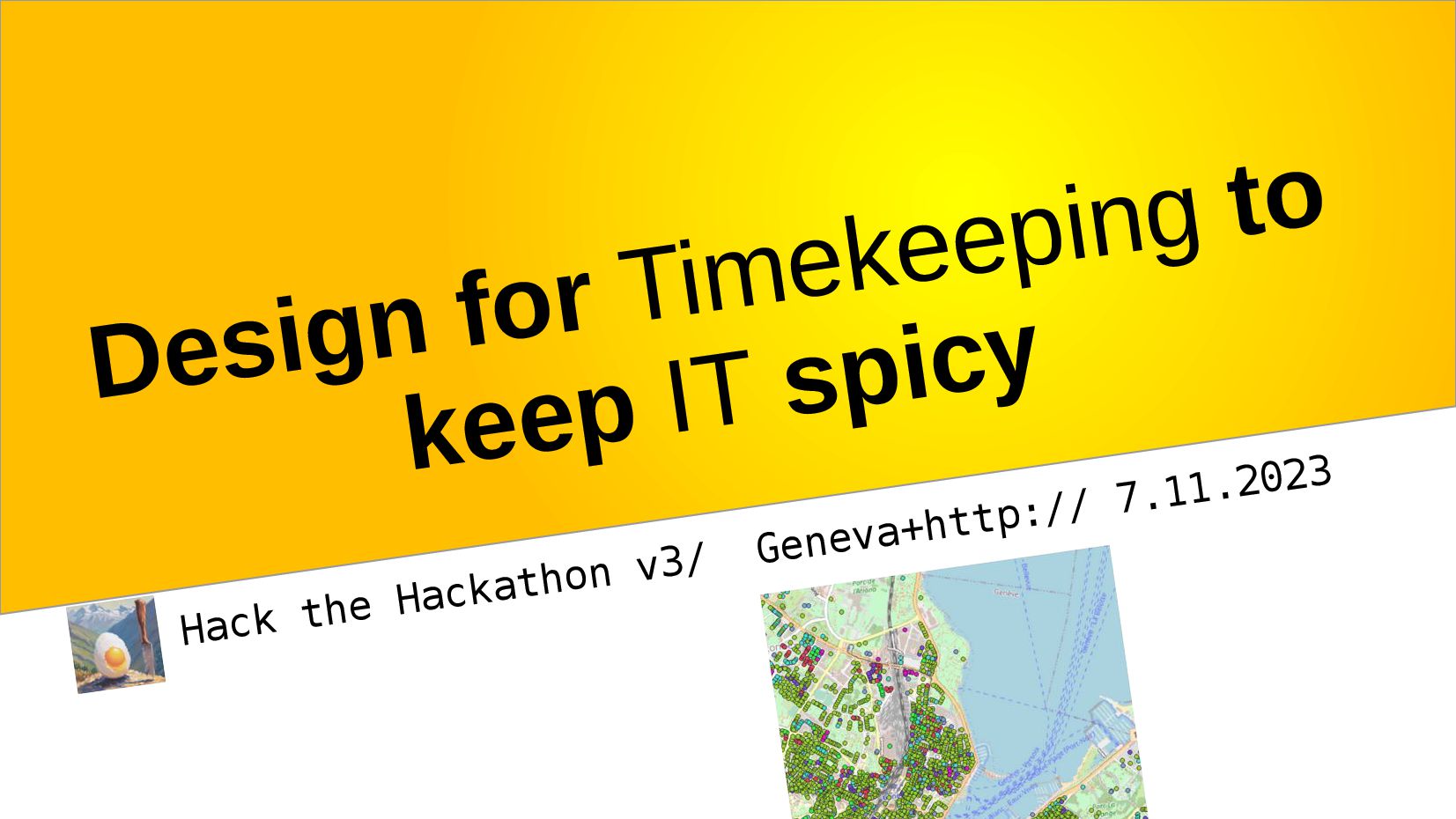
Design for Timekeeping to keep IT spicy
Hack the Hackathon v3 / Geneva + http:// 7.11.2023
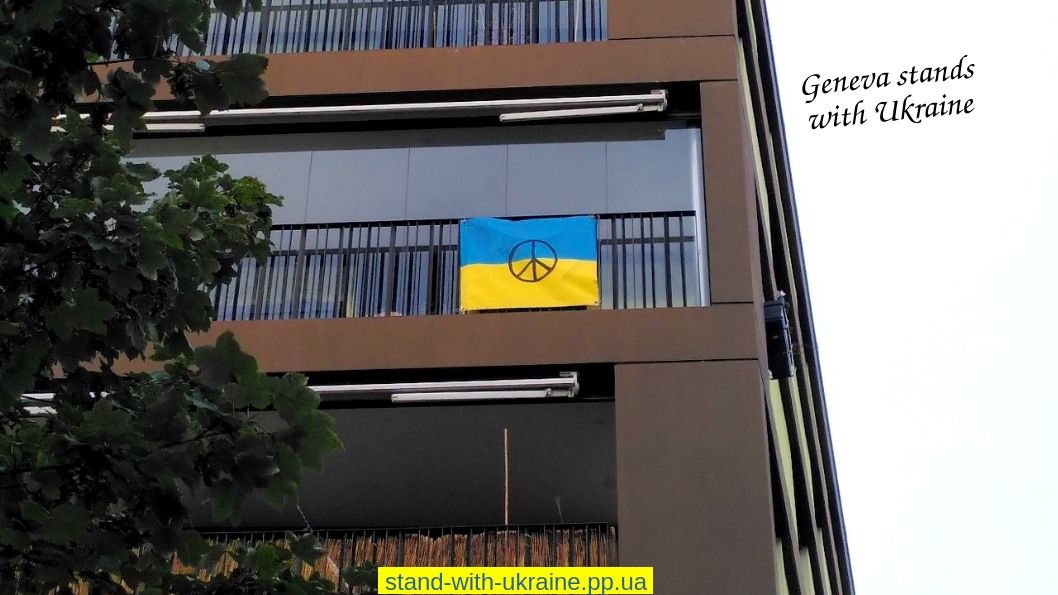
Before I begin, I would like express my profound regret for the atrocities committed on the lands and to the peoples of the Ukraine. I live in hope of peace and reconcilliation – in gratitude to my neighbours here in Switzerland, and to people all over the world who have opened their doors and workplaces to refugees of all creeds and colours.
We are here to discuss science, not politics, and I appreciate all of you here managing to continue your work despite the state of civilization today.

Thank you for organising this hacky hack-ference. It is wonderful to be here, I very much enjoyed the spicy food and warm genevan-ethiopian welcome yesterday. I would like to take a moment today to talk to you about my favorite dish – Information Technology. Far too often, IT is a dish served cold. Wet. “Unappetitlich”, as we say in German. And yet, an essential nutrient of a wholesome modern life. Given the mess we’re in, IT is quite likely a key to our survival as a species. So, how could we “spice IT up”?

In the summer of 1999, I was a Microsoft fan-boy. While my memory of this time is increasingly foggy with age, let me indulge you with a piece of 90s tech nostalgia. My family lived in Calgary, Alberta, Canada, and we drove north to Edmonton to see the Rolling Stones on the No Security Tour, where I was delighted to see them perform "Start Me Up" live on stage. Little did I know that, just down the road where I lived, history was happening. The topic of the day on June 4, 1999 was IT security, or specifically, IP security.

The first “Hackathon” (according to Wikipedia) brought a group – who otherwise worked remotely – together to Calgary, to work on the open source project OpenBSD. Next year will be the 25th anniversary of that meeting. Looking back a quarter century makes me feel old & wise (heh heh). However, in the Canadian west, the practice of barn-raising has been practiced for centuries. In any case, I believe this pioneering hackathon followed in the footsteps of a long tradition of timeboxed tinkering and open learning.

Fifteen years later, I helped to 'barn-raise' the first open government data portals in Switzerland. I worked with the Canton of Geneva and several other cantons and cities, with schools and universities as well as the Federal government. Open data still keeps me busy, especially as a resource for promoting Data Literacy: a priority from day 1, with hackathons being an effective instrument.
It has been a priviledge to organize and run in a multitude of 'Hackdays', with institutions of all kinds. I root for OpenGeneva, who helped to bring us here today, and help to run a similar week-long city event called MakeZurich. Last weekend I supported BaselHack and was in the UN Datathon like others here. One month ago, we had a GLAMhack event here in Geneva with an inspiring historical clock hack. What can I say? It’s a great scene! And the time really flies by when you're having fun.

During these years (visit 10years.opendata.ch for a timeline), we have built platforms that bootstrap the work of organizers and participants. Initially on wikis like the open source DokuWiki, later on Discourse forums, and in the past few years with a Python web application called Dribdat. A thousand thanks to the participants for all the hacks that you have documented! Your deeds will be remembered.
With further waves of digitalization, we see people branching out into virtual worlds, metaverses of hackathons. I hope that our mission does not waver far from the needs of the statistically underaccounted and otherwise disenfranchised people of the world. No matter the platform, the common activity: spending time. Arriving for duty on time, keeping the trains running on time, the Swiss have a strong culture of time-mapping and time-influencing to draw on. Our experimenting platforms should similarly be built on values of temporal accountability and creative scrappiness.

When I first walked into the SDG Solution Space yesterday, I wandered over to the library in the back and picked up a book – the Guide on Measuring Human Capital from the UN Economic Comission. I borrowed it, thinking it would help to put me to sleep – instead, it kept me up half the night. Social capital is a very big deal to nations, whether to track global economic prosperity, provide recommendation to governments, or improve the livelihoods or “subjective life experiences” of our fellow citizens and hackathon participants. We can do more than just hope that all those contributions add up.
In the image above is a shallow fake: a typical Swiss orange payment slip written on behalf of the GLAMhack community. If you scan the QR code, you can see the data behind it: an accounting of the hours that people have invested in a hackathon. This is the kind of thing we need to think about more – how is limited human capital allocated, budgeted, spent. To better understand the mindset of the sponsors and organizers of hackathons, we can try to quantify the way they appreciate their volunteers.

I like to think of technology as an innate part of us, hackathons an invitation to experiment with self-tracking within an interested, open, pioneering community. We are learning here to reinterpret our data, reshape and quantify our environment. Sometimes we try to make the most of the time by forgetting about it, getting swept away in the flow, in the moment.
The rules, the setup, the room, the pizza: these all add to the human experience of the event. Now, consider the key ingredient that makes IT tick: Computation. Processing speed. Moore’s Law. When organizers try to install a sense of "hackiness" in the room's decor, we surround ourselves with screens, use illustrations and imagery suggestive of the post-industrial knowledge factory that AAA hackathons exemplify.
Working with diverse topics and people, “context switching” in overdramatized time constraints, the ultimate forms of multitasking emerge when software/ hardware/ brainware gets mélanged into a spicy concoction. This is the human-computer interface that we often get to see in well-refined form at hackathons.

The anticipation of the meal is half of the meal. Our left and right brains are in a race condition. Today we are in Geneva, in the land of clocks and watches, a dedication to mastery of this mechanical/digital craft. At nearby CERN, our understanding of time is being reshaped by theoretical quantum physics and cutting edge experimental research that keeps asking the old question: what is time? Time is a frame of reference.
When you survey your hackathon – ask people about their gigaFLOPS. In the age of A.I. these things matter. They have always mattered, but today, it is like having an extra 10 or 100 virtual brains on your team. Bring out the proverbial Tick-Tock: make auditory, intuitive, reflective time perception a core part of the hackathon experience, like the role of timekeeper is already today a major one in the background of all professional sports events. Dedicate a section on time in your rulebook. And when you are keeping the pace, keep track of elapsed time as a function of execution units.

Where do we go from here? Like all of you, I have one or two fresh ideas. I’m working right now with the Data Design + Art team at the University of Lucerne (HSLU) on some facets of this. We have been making hackathons a part of undergraduate education for some years.
I am hoping to raise funds for an R&D project on ethical data collection at hackathons in the next months. Then, I am hankering to rebuild our platforms based on a time-series database and open source large-language models, with designs rooted in video games, computer graphics and open databases. Think of this as a next-gen esports platform for human and artificial talent. We can start by putting hackathons in a box, something we do already with The Things Network community.
If this sounds like your cup of tea then... Hack me up!

If you would indulge me – Ladies and Gentlemen and people of all genders – this is Start me up, featuring the Rolling Stones and Microsoft Windows 95:
In the appendix of my slides, you can find a series of questions for hackathon organizers (which we later used in The Vibe Hive).
Technology reveals us to ourselves as we always in fact were: networked, distributed, laced with code.
-- Tom McCarthy for The Guardian, Nov 2011


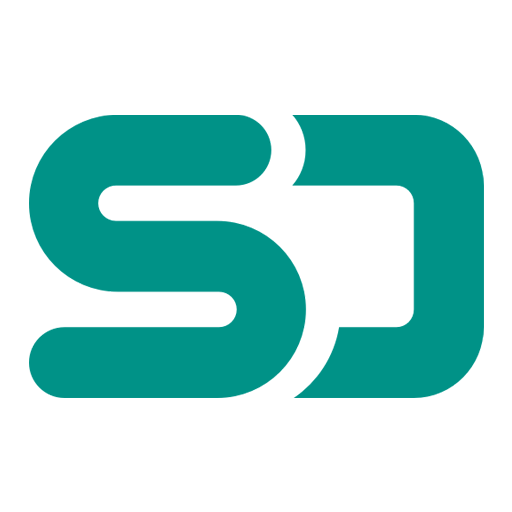

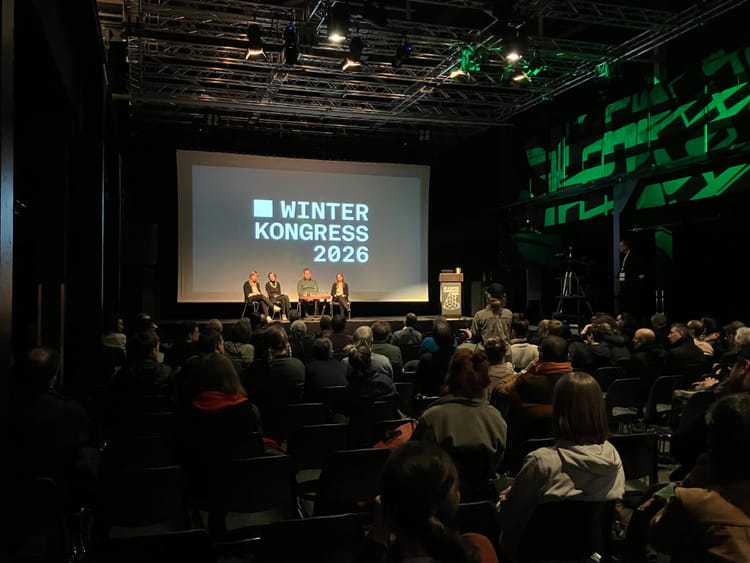
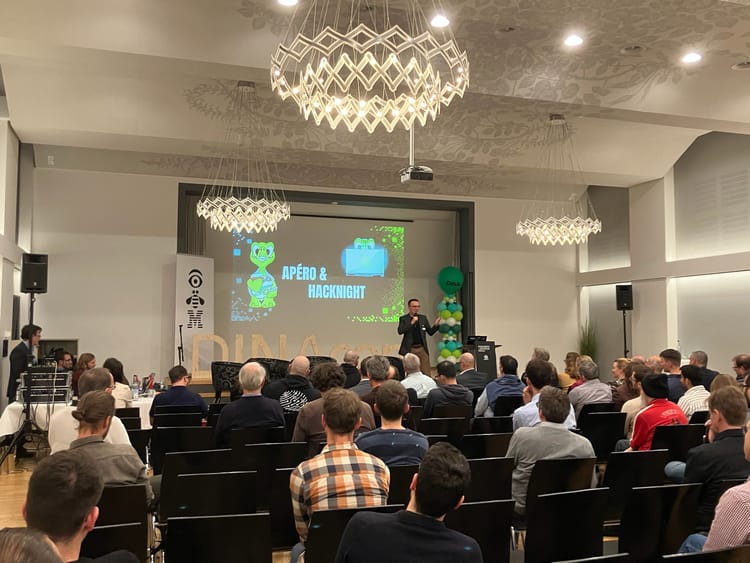

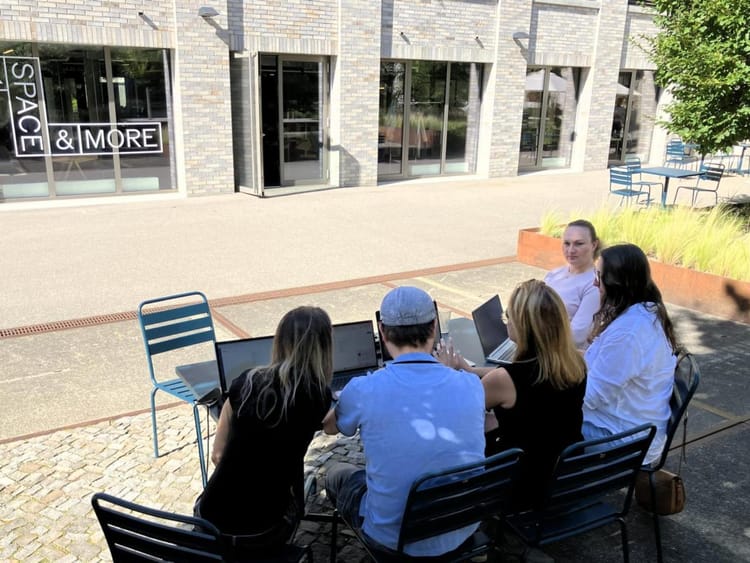
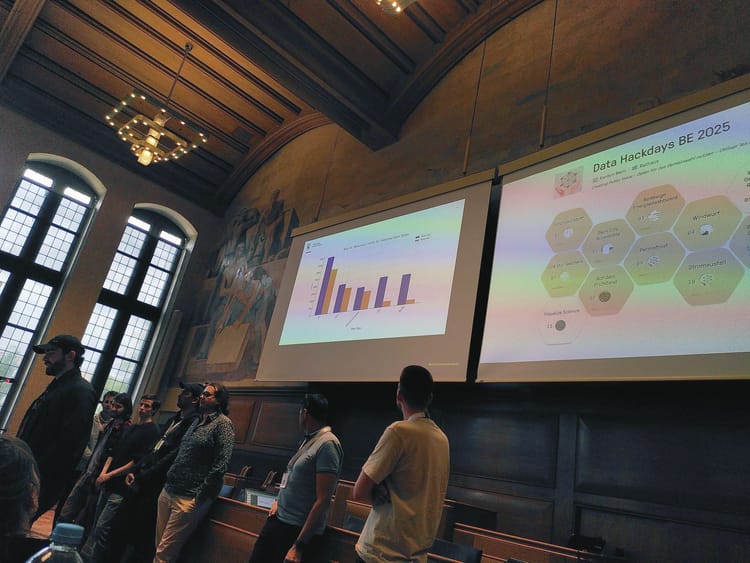
 The works on this blog are licensed under a Creative Commons Attribution 4.0 International License
The works on this blog are licensed under a Creative Commons Attribution 4.0 International License